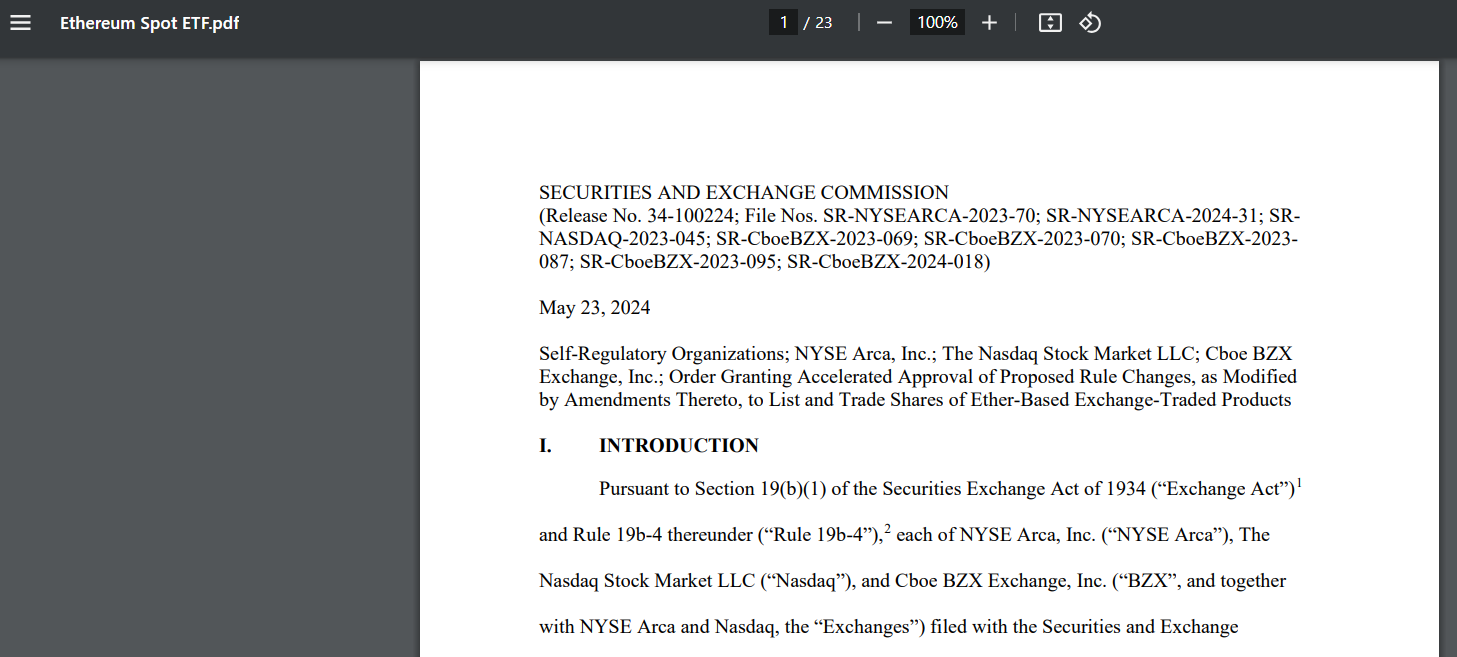The US Securities Regulator has finally given official approval for the spot Ethereum ETF, and 19B-4 forms for 8 applications have been approved. Now, the SEC needs to approve the S-1 forms for these ETFs to trade on the stock markets. This may not happen immediately, but investors are happy as the most important step has been completed.
SEC Granted Approval
Previously, the SEC mentioned doubts about Ether being a security. In its recent Wells Notices sent to crypto companies, the SEC officially stated this. However, today, likely for political reasons, it backtracked and gave initial approvals to all 8 applications. S-1 Form approvals will come in a few weeks.

There are a few important details that I should summarize in bullet points:
- After careful review, the Commission found the Proposals consistent with the Exchange Act and rules for a national securities exchange.
- Approval was given as Commodity-Based Trust Shares, meaning the ETF is now officially a commodity.
- A 99% correlation between CME and spot ETH pricing was accepted.
- Each Proposal outlines consistent aspects with other ETPs approved by the Commission, including pricing information availability, portfolio asset transparency, and types of oversight procedures.
- One commenter argued the Commission should approve the Proposals because CME ether futures ETFs, registered under the 1940 Investment Company Act, already trade on national securities exchanges and have more potential for underlying asset manipulation. Another commenter stated there is no difference between the approval of spot bitcoin ETPs and spot ether ETPs at this point.
The SEC explains why it granted approval as follows:
“Investor demand for ETH ETFs, environmental considerations related to Ethereum’s proof-of-stake consensus mechanism, whether a Trust would be allowed to stake its ether, the potential disadvantage to US innovation if the Commission does not approve spot ether ETPs, and the negative discrimination US investors would face compared to investors in other countries, led the Commission to determine that the Proposals meet the requirements of the Exchange Act, including Section 6(b)(5), and thus approve the Proposals.”
Signed by J. Matthew DeLesDernier from the SEC, marking a historical note.

 Türkçe
Türkçe Español
Español









